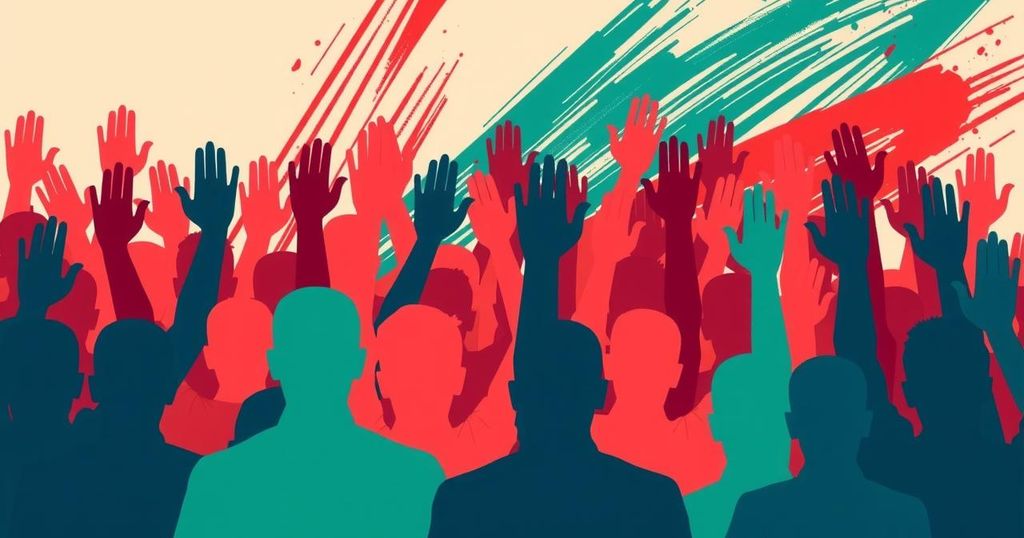Global news
AHWAZIS, ASIA, BAHRAIN, CAR, CONFLICT, FOX NEWS DIGITAL, GAZA WAR, HEZBOLLAH, IRAN, IS, ISRAEL, JERUSALEM, MAHSA AMINI, ME, MIDDLE EAST, MIDDLE EAST CONFLICT, MIDDLE EAST MEDIA RESEARCH INSTITUTE, NET, NUCLEAR POLICY, PAKISTAN, SAUDI ARABIA, SYRIA, US-IRAN RELATIONS, YEMEN, YI, YIGAL CARMON
Isaac Bennett
0 Comments
Netanyahu Calls on Iranian Citizens to Seize ‘Opportunity’ for Regime Change
Israeli Prime Minister Benjamin Netanyahu has called upon the Iranian people to seize their opportunity for regime change, following Israeli airstrikes on Iran’s military and nuclear facilities. Amidst ongoing internal unrest and international backlash against the Iranian regime, he emphasized that minorities, comprising almost half of Iran’s population, hold significant potential for instigating change.
In a bold move shortly after Israeli airstrikes targeted Iran’s nuclear and military facilities, Prime Minister Benjamin Netanyahu issued a direct appeal to the Iranian populace. He urged, “This is your opportunity to stand up [to the regime].” Netanyahu’s statements come amidst a turbulent time for the Iranian regime, which has faced international condemnation for its support of state-sponsored terrorism affecting countries like Syria, Yemen, Bahrain, and Saudi Arabia. Iran’s history of internal dissent could be a sign that changes to the regime might be imminent.
Netanyahu indicated that Israel is currently involved in one of the greatest military campaigns ever, asserting, “The Islamic regime, which has oppressed you for almost 50 years, threatens to destroy our country.” He emphasized that the objective behind striking Iran’s key military sites is to mitigate the nuclear and missile threats posed by Iran. He described these military actions as a way to weaken the Iranian leadership, potentially creating a unique window for opposition factions within the country.
Experts note that Iran’s various minority groups make up a significant portion of the population, potentially accounting for as much as 50%. Some analysts believe that if these oppressed groups could unite against the oppressive regime, they might have the ability to instigate regime change. The recent dynamics—especially following the death of Mahsa Amini after her arrest by the morality police—have intensified unrest in the nation.
Amini’s death ignited widespread protests across Iran, which were met with severe repression and arrests. Yigal Carmon, the President of the Middle East Media Research Institute, stated that fears of another uprising in conjunction with military tensions against Israel have led to the arrest of members from the Ahwazi minority, who comprise between six to eight percent of the Iranian population. It remains uncertain whether protests are underway or if these arrests were preventive measures against dissent.
Carmon expressed that any future change in government would likely have the backing of numerous individuals, primarily among minority groups, as he sees them as strategically organized for militancy. He remarked, “A coalition of non-Persian ethnic groups could topple the regime in a few months,” emphasizing that these groups are better organized compared to the mainstream Persian opposition.
Other minorities in the country, such as the Kurdish population, which constitutes about 10 to 15%, and the Baloch peoples at approximately five percent, have also historically opposed the regime but paid dearly for their resistance. Netanyahu urged the citizens to raise their voices powerfully: “It has never been weaker. This is your opportunity to stand up and let your voices be heard. Woman, Life, Freedom Zan, Zendegi, Azadi.” He reiterated that Israel’s conflict lies not with the Iranian people, but with the regime that oppresses them.
In conclusion, Prime Minister Netanyahu’s urgent call to the Iranian people highlights a moment of potential transformation amidst significant military actions by Israel against Iranian targets. As internal unrest continues to rise and minority groups gain visibility, the possibility of regime change appears more conceivable than ever. With the backdrop of recent protests, Netanyahu’s appeal resonates as both a challenge to Iran’s ruling powers and as encouragement to the oppressed within.
Original Source: www.foxnews.com




Post Comment